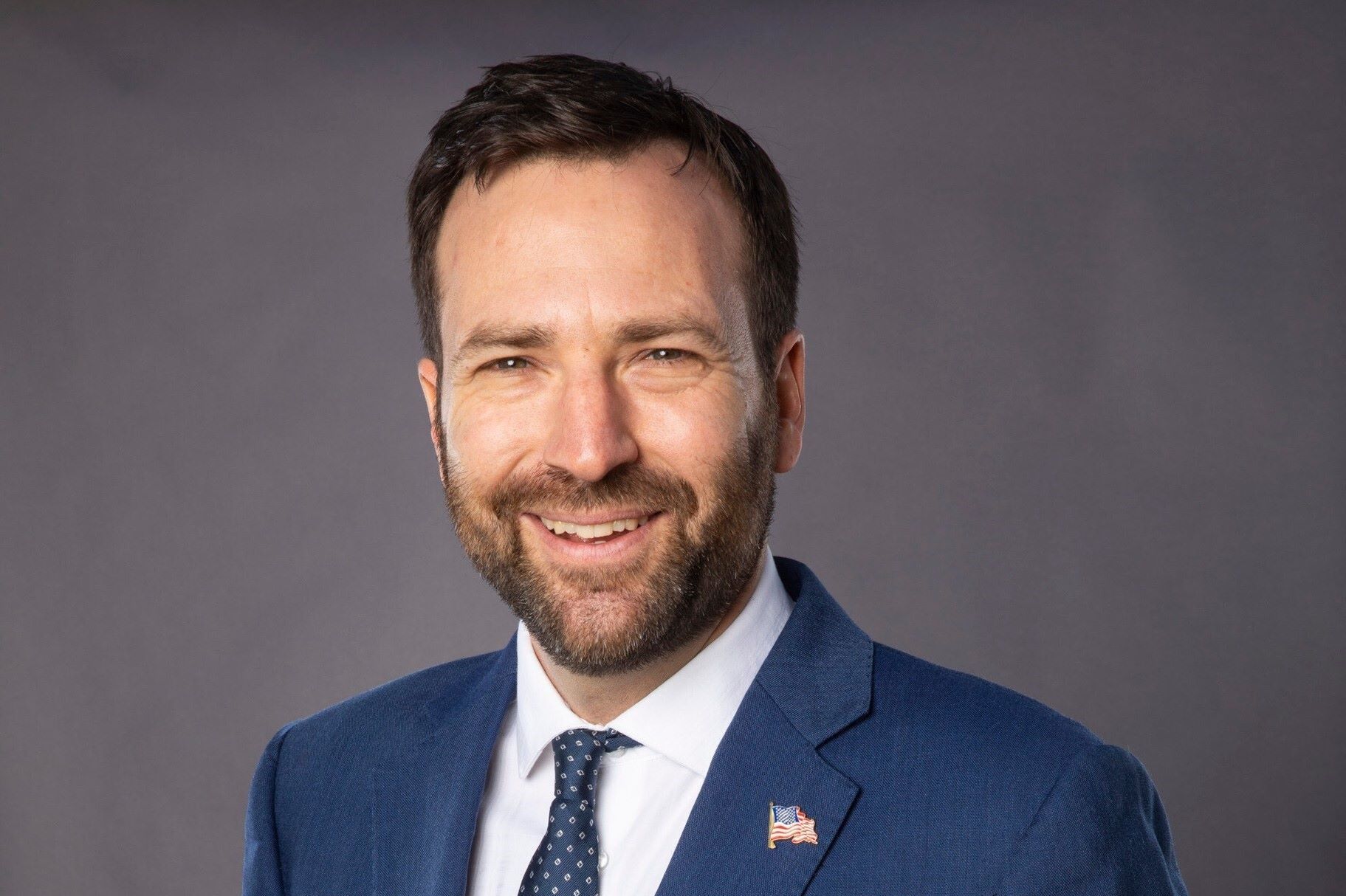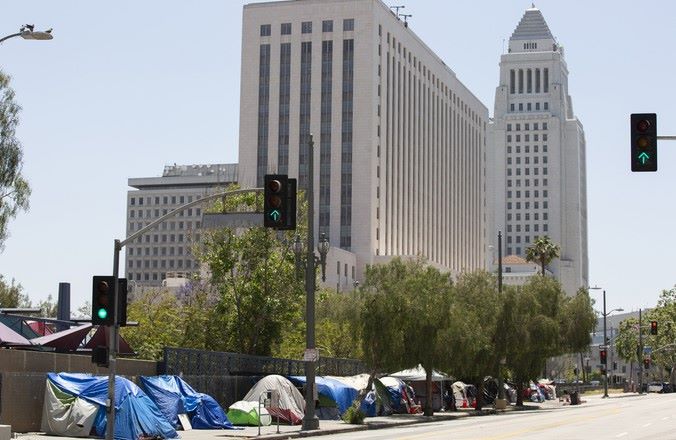Senator Ben Allen, who represents a large portion of the Westside including Beverly Hills, Santa Monica, Marina Del Rey, Venice, and West Hollywood, has introduced many pieces of legislation this year. Let’s take a look at several more of his 2024 bills:
Santa Monica Big Blue Bus Transit Safety
The Big Blue Bus in Santa Monica covers 20 routes over 58 square miles and serves nearly 27,000 daily riders.
In 2022 and 2023, Big Blue Bus transit workers reported nearly 450 incidents of passenger disruptions, including threats and assaults against bus drivers and other passengers. Instances of property damage have also occurred including individuals kicking and punching bus doors, shattering windows and windshields, and breaking off windshield wipers and mirrors.
Senator Allen has introduced Senate Bill (SB) 1417 which adds the Santa Monica Department of Transportation to the list of transit agencies authorized to issue prohibition orders. This will increase safety for both workers and transit users and enhance the transit experience for riders.
The City of Santa Monica is also introducing a Transit Safety Officer program that will add transit ambassador personnel to aid in de-escalating disturbances, assisting customers, and deterring crime. Coupled with the authority to issue a ban, the new officers will reduce disruptive and dangerous behavior, improve safety, and restore rider confidence in public transit.
Assisted Living Affordability
According to the state’s Homeless Data Integration System, between 2017 and 2021, California’s senior population grew by seven percent, while the number of people 55 and over who sought homelessness services increased by 84 percent.
Over the last two years, assisted living facilities, also known as Residential Care Facilities for the Elderly have been raising the rates they charge residents, according to the National Investment Center for Seniors Housing and Care.
SB 1406 would address the affordability crisis in the assisted living industry by doing three things:
- Would clarify residents’ right to request, refuse, or discontinue a service
- Would require facilities to give residents and their representatives 90-day notice of rate increases with a detailed justification for the hike
- Would set limits to annual rate increases by clarifying and expanding protections for assisted living residents.
California has nearly 6,000 assisted-living facilities, triple the number of skilled nursing homes. As the overall cost of living continues to rise, the number of seniors – many of whom are on fixed incomes – experiencing homelessness is expected to triple by 2030.
Federal Medicaid requirements do not mandate the coverage of care delivered in assisted living settings since these facilities are not considered medical institutions.
The Assisted Living Waiver program run by Medi-Cal allows Californians who are enrolled in full-scope Medi-Cal to access coverage for care and services provided in assisted living settings. The program, however, is only available in 15 of the state’s 58 counties, with limited open spots, and long waitlists.
Four of every five facilities in the U.S. are run as for-profits. Investors, regional companies, and international real estate trusts have jumped in, with half of operators in the business of assisted living earning returns of 20 percent or more than it costs to run the sites, according to an industry survey.
Travel DISCLOSE Act
SB 1422 would remove an exception in current law that allows most organizations to avoid disclosing payments of more than $10,000 for elected officials’ travel expenses. The bill would also require travel disclosures to include the total contributions of donors who paid for elected official travel or accompanied the official, which trips they paid for, and which elected officials and donors went on those trips.
According to a recent article by CalMatters, a review of disclosure filings with the Fair Political Practices Commission revealed legislators had disclosed millions of dollars in travel sponsored by nonprofits and special interest groups who flew lawmakers to Argentina, Canada, France, and other worldwide locations. In 2023, more than 100 groups spent about $1.1 million on sponsored trips, compared to 85 groups and $950,000 in travel in 2022. In 2023, legislators went on a combined 561 trips.
Most organizations that reach the $10,000 threshold in travel spending do not also reach the one-third expense threshold.
The bill would eliminate the one-third expense threshold and also expand the law so that any person other than a governmental organization that spends more than $10,000 in a calendar year on travel by elected state or local officials or more than $5,000 on travel by a single elected official must file a report with the FPPC.
It would also expand the disclosure to include the locations and dates of the travel events, which elected officials went on those trips, and the names of any donors that attended. It will also require disclosure of the names of any donors who knowingly contributed at least $1,000 to fund travel for elected officials. Finally, it requires disclosure of the total annual donations of each listed donor.
“If you’re a massive organization that is spending money on a gazillion other things, does that make the disclosure of your trips any less meaningful or impactful and important?” Allen rhetorically asked CalMatters. “Disclosure helps the press and the public and other folks that are trying to engage in the political process to better understand the system that’s in place to influence legislators.”
Examination of Petitions
SB 1441 would establish a 60-day examination period for petition advocates to review election-related petitions that fail to receive sufficient signatures and permits local election officials to recover the costs of those examinations.
County elections officials would better determine the impact petition reviews have on their operations and allocate resources accordingly. Requiring proponents to reimburse the county for the costs of conducting this review aligns with provisions currently found in Elections Code Section 15624 for cost recovery of voter-initiated recount efforts.
In enacting the cost recovery provision for recounts, the legislature determined that doing so would encourage all parties to use resources efficiently. The same should be true for the review of failed petitions.
California provides petition advocates the opportunity to begin an examination of a disqualified petition after a county has determined that there were insufficient signatures to qualify for the ballot.
Currently, the state does not limit the time the petitioners can take once a review has been initiated and is silent about cost recovery for county staff time and other public resources used during the examination process.
Petition reviews usually occur over the course of only a few days and sometimes last one or two weeks. In one recent case in Los Angeles County, petition advocates initiated a process to review tens of thousands of signatures that lasted 14 months.
The review overlapped with the 2022 General Election and taxed the county’s staff time for conducting the election. This one petition review cost the county $1.5 million providing proponents with dedicated office space, computers, and temporary staff to accommodate their requests.
Disaster Eligibility for Landslides
Allen’s SB 1461 would expand the statutory definition of disasters constituting a state of emergency under the California Emergency Services Act to include landslides.
Under existing law, the California Emergency Services Act authorizes the governor to declare a state of emergency, and local officials and local governments to declare a local emergency, when specific conditions of disaster or extreme peril to the safety of persons and property exist, and authorizes the governor or the appropriate local government to exercise certain powers in response to that emergency.
Existing law defines the term “state of emergency” and “local emergency” to mean a duly proclaimed existence of conditions of disaster or extreme peril to the safety of persons and property within the state caused by, among other things, fire, storm, riot, or cyberterrorism. The bill would additionally include a landslide, as defined, among those conditions constituting a state of emergency or local emergency.
Low Income Oversight Board
SB 1480 would add telecommunications to the list of industries within the jurisdiction of the California Public Utilities Commissions Low Income Oversight Board to better connect low-income Californians with available affordability programs.
Under Existing law, the Low-Income Oversight Board advises the Public Utilities Commission on low-income electricity, gas, and water customer issues and serves as a liaison for the commission to low-income ratepayers and representatives.
The bill would expand the duties of the board to include monitoring and evaluating the implementation of all programs provided to low-income telecommunications customers and would require the commission, in conjunction with the board, to ensure that the financial burden, rather than the energy burden, of low-income electricity, gas, water, and telecommunications customers is reduced.
The bill would also require the Public Utilities Commission, on or before January 1, 2026, to adopt a process by which a consumer enrolled in a commission-administered low-income utility program receives a notification at enrollment providing information about other utility assistance programs for which the consumer may be presumptively eligible, and information about how to apply for those programs.
The bill would require the commission to work with the Low Income Oversight Board to develop an outreach strategy to improve enrollment of eligible households across low-income utility assistance programs.
Photo courtesy of Senator Allen’s Office.
Stay informed. Sign up for The Westside Voice Newsletter
By clicking submit, you agree to share your email address with Westside Voice. We do not sell or share your information with anyone.








